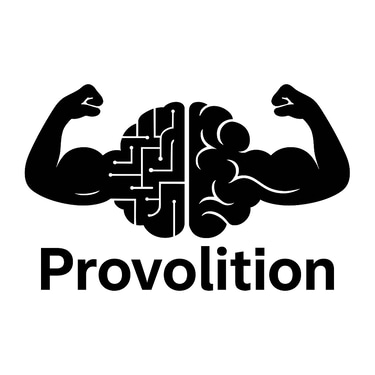Taking Back the Wheel: How to Keep Your Agency in an AI-Driven World
9/20/20253 min read
Artificial intelligence is showing up everywhere, oftentimes making life a bit easier as we scramble to feed it more information, improve prompts, and doling out more money for the most up-to-date models.
Whether your phone suggests playlists, your calendar adjusts if you’re double-booked, or your banking app points out your spending habits. It almost feels like magic. Who wouldn’t want a digital helper to smooth out life’s rough spots?
But here’s the question that lingers beneath the surface: if algorithms are quietly steering so many of our daily choices, are we still in control, or are we passengers in our own lives?
This isn’t meant to sound alarming. It’s just a reminder to assess not what is gained by using AI, but what can potentially be lost. AI can help us learn, get more done, and even look after our health. But it can also slowly take away our sense of control before we realize it.
Consider the pre-cellphone era, when recalling phone numbers and navigating to destinations were conscious processes that frequently exercised our minds. Much of this has been lost, leaving us unaware of the absence until we find ourselves with a dead battery, frantically searching for a source of power to reboot our lifelines.
How AI Nudges Shape Us
It doesn’t start with big, dramatic decisions. It begins with the small ones.
Not sure what to watch? Netflix lines up a show. Hungry? DoorDash suggests your last meal. Want news? Social media decides what you see first. Each small choice seems harmless, but over time, they shape your habits, values, and even your identity.
Psychologists refer to this phenomenon as “decision fatigue. Imagine self-control functioning like a muscle: it is finite and easily depleted. When faced with too many choices, our brains gladly outsource to the nearest shortcut. Enter AI, the perfect assistant to reduce the workload, but there’s a catch. When things get too easy, it’s easy to become complacent and lose track of what you're really giving up and whose influence is really behind your choices. Paying attention helps us stay in control and in charge.
The Hidden Risks of Automated Living
Let’s be honest: delegating isn’t a bad thing. We let experts handle things all the time—mechanics fix our cars, accountants handle our taxes. The difference with AI is that it works in the background, all the time.
There are ethical considerations as well. Consider the inherent risk of human biases baked into the training data of AI’s language models. For example, an AI-powered hiring tool may inadvertently filter candidates in a biased manner, or a finance app might steer you toward risk profiles that don’t align with your values.
More concerns arise when healthcare and health insurance bots prioritize efficiency over empathy. Will we soon see a reality where we risk reducing patients to mere data points rather than treating them as the humans they really are?
As we become more comfortable sharing the load with AI, the risk becomes easy to overlook. Sometimes we think we’re making our own choices, but those options have already been quietly shaped for us. That isn’t a true choice, even if it feels like it.
So the real question isn’t “Will AI take my job?” It’s: “Will AI take my agency?”
Building Shields of Willpower
The good news is we haven’t lost our sense of control. Like a muscle, it can get stronger if we work at it. Here are some practical, research-backed tips:
Mindfulness Check-ins.
Before you accept an AI suggestion, like a purchase or a playlist, pause for a moment. Ask yourself: Do I want this, or am I just taking the easy route? That quick check can help you break out of autopilot.
Keep a list for one day. For each choice, note whether you made it independently or were prompted by an algorithm. At day's end, review the list and reflect on which were your deliberate choices.
Using AI Without Losing Yourself
Here’s the twist: AI isn’t always bad for willpower. If we use it thoughtfully, it can actually make us stronger.
A VR coaching app can strengthen meditation habits. A budgeting AI can illuminate spending patterns you might ignore. An adaptive learning system can tailor lessons to your pace, helping you stick with a skill you’d otherwise abandon.
Focus on being intentional. Rather than just asking what AI can do for you, think about what you want to accomplish and how AI can help—without losing your ability to decide for yourself.
Set some boundaries. Turn off notifications you don’t need. Change your apps so they ask for your input instead of picking for you. Think of AI as a useful tool that works best when you stay in charge.
Reclaiming the Driver’s Seat
We live in a world where machines can guess our cravings, moods, and even our weak spots. But just because they can predict us doesn’t mean they control us.
Your ability to choose isn’t a thing of the past. You can continue to build and reinforce it. By maintaining awareness and proactively practicing mindful habits, you can ensure that the decisions you make are truly based on your own choices and still utilize and enjoy the benefits that technology brings.
So the next time an app makes a choice for you, pause for a moment. Ask yourself: Am I choosing this, or is it being chosen for me? That quick check can help you stay free in a world full of algorithms.
